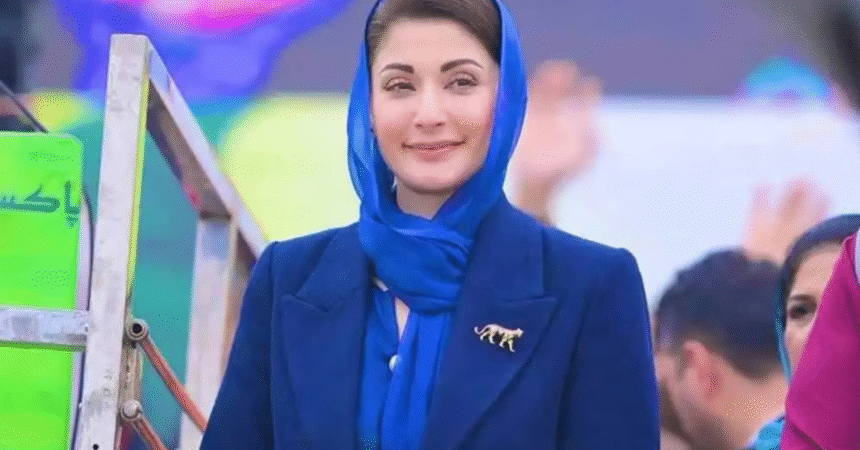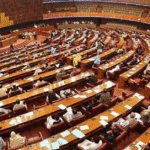In a decisive move aimed at bolstering the financial landscape of Punjab, Chief Minister Maryam Nawaz has initiated a comprehensive review of land ownership records held by various government departments. This significant directive, reported by 24NewsHD, was issued during a recent meeting that focused on assessing the revenue targets for the first quarter of the fiscal year. By taking this step, the Chief Minister is not only addressing the immediate financial challenges faced by the province but is also laying the groundwork for more effective resource management and strategic planning.
- A New Approach to Resource Management
- Understanding the Need for Review
- Engaging Local Authorities
- The Expansion of the Punjab Revenue Authority
- Data-Driven Decision Making
- Financial Management Strategies
- Challenges Ahead
- The Role of Community Engagement
- Monitoring and Evaluation
- The Broader Economic Context
A New Approach to Resource Management
The Chief Minister’s call for a review of government land records underscores the necessity of efficient resource utilization in a province that has historically faced economic constraints. With a vast amount of land owned by various departments, the potential for revenue generation through optimal usage is substantial. Maryam Nawaz’s vision includes preparing a strategic plan to ensure that government-owned land is used effectively, potentially leading to increased revenue without imposing additional financial burdens on the public.
Understanding the Need for Review
Punjab, being the most populous province in Pakistan, faces numerous socio-economic challenges, including high unemployment rates and a growing demand for public services. The economic situation is further exacerbated by limited financial resources and increasing expenditure needs. By focusing on government land ownership, the Chief Minister is attempting to identify underutilized assets that could be leveraged for economic development.
Government land can serve various purposes, including industrial parks, commercial developments, and agricultural initiatives. The review aims to evaluate the current usage of these lands and explore opportunities for development projects that could attract investment and create jobs.
Engaging Local Authorities
The Chief Minister’s meeting also highlighted the need for increased collaboration between various levels of government. By empowering local authorities, such as Assistant Commissioners and the Additional District Collector (ADC), the administration aims to enhance the efficiency of revenue collection processes. Local officials are often more attuned to the specific needs and opportunities within their communities, making them ideal agents for implementing the provincial government’s revenue strategies.
The Expansion of the Punjab Revenue Authority
In conjunction with the land review, the meeting approved the expansion of the Punjab Revenue Authority into various districts across the province. This expansion is anticipated to enhance the authority’s capability to monitor, assess, and collect revenue more effectively. By extending its reach, the authority can ensure better compliance and streamline operations at the local level.
This move is particularly significant given the challenges faced by the Punjab Revenue Authority in achieving its targets in previous years. The ability to adapt to local conditions and requirements will be crucial for the authority’s success. Moreover, empowering local government officials will facilitate a more responsive and accountable approach to revenue collection.
Data-Driven Decision Making
Maryam Nawaz emphasized the importance of data in shaping effective policy decisions. One of her key directives was to compile accurate data concerning local businesses, including restaurants, bakeries, and marriage halls. This data will not only provide a clearer understanding of the provincial economic landscape but will also help identify potential revenue sources that may be overlooked.
In today’s data-driven world, having accurate and comprehensive information is critical for effective governance. By understanding the dynamics of local businesses, the provincial government can tailor its policies to foster a more conducive environment for economic growth. This could include tax incentives for small businesses or support programs aimed at improving compliance with existing regulations.
Financial Management Strategies
Maryam Nawaz’s approach to revenue generation is grounded in the principle of increasing financial resources without raising taxes on the public. This philosophy reflects a commitment to responsible governance and aims to alleviate the financial burden on ordinary citizens. The Chief Minister stated, “Whatever is collected in the public treasury will be spent on the people,” reinforcing her administration’s dedication to transparency and accountability.
By focusing on optimizing existing resources, the provincial government can work toward achieving its revenue targets without resorting to additional taxation. This strategy is especially important in a context where many citizens are already facing economic challenges. The Chief Minister’s acknowledgment of limited financial resources underscores the need for innovative solutions to improve fiscal health.
Challenges Ahead
While the plans set forth by the Chief Minister are ambitious, they are not without challenges. One of the primary obstacles will be ensuring that local authorities are adequately equipped and trained to implement these new directives. There is often a gap between policy formulation and execution at the local level, and bridging this gap will be essential for the success of the initiatives.
Additionally, the political landscape in Punjab can be complex, with various stakeholders having different interests. Navigating these dynamics while pursuing the province’s economic goals will require careful negotiation and collaboration among various parties. Building consensus around the importance of effective land management and revenue generation will be crucial for achieving sustainable progress.
The Role of Community Engagement
To foster a sense of ownership and accountability, community engagement will play a vital role in the successful implementation of these initiatives. The provincial government can benefit from involving local communities in the planning and execution stages. Public consultations and stakeholder meetings can provide valuable insights into local needs and priorities, leading to more informed decision-making.
Engaging the public also fosters transparency and builds trust between the government and citizens. When communities feel that their voices are heard and that they have a stake in the development process, they are more likely to support and comply with government initiatives. This collaborative approach can enhance the overall effectiveness of the government’s revenue strategies.
Monitoring and Evaluation
To ensure the success of the revenue generation initiatives, a robust monitoring and evaluation framework will be essential. The government should establish clear metrics for assessing the effectiveness of the land review and expansion of the Punjab Revenue Authority. Regular evaluations can provide insights into what is working and what needs to be adjusted.
Feedback loops are crucial for continuous improvement. By regularly assessing the outcomes of implemented strategies, the provincial government can adapt its approach based on real-time data and community feedback. This iterative process can lead to more effective policies and a stronger financial position for the province.
The Broader Economic Context
The initiatives announced by Maryam Nawaz must also be viewed in the broader economic context of Pakistan. The country has faced significant economic challenges in recent years, including inflation, high debt levels, and a struggling currency. As Punjab is the economic engine of Pakistan, the province’s success in improving its financial resources can have far-reaching implications for the entire country.
In this light, the Chief Minister’s efforts to optimize land use and enhance revenue collection are not just provincial initiatives; they are part of a larger strategy to contribute to the national economy. By addressing local economic challenges, Punjab can set a precedent for other provinces and contribute to the overall economic stability of the country.
Maryam Nawaz’s proactive approach to reviewing government land ownership and expanding the Punjab Revenue Authority reflects a commitment to enhancing the province’s financial landscape. By focusing on optimal resource utilization, data-driven decision-making, and community engagement, the Chief Minister aims to generate revenue without placing an additional burden on the populace.
While challenges remain, the potential benefits of these initiatives are significant. By navigating the complexities of local governance and fostering collaboration among stakeholders, the Punjab government can work toward achieving its revenue targets and ensuring a brighter economic future for its citizens.
The initiatives set forth by the Chief Minister may well serve as a model for other provinces grappling with similar economic challenges, highlighting the importance of innovation, collaboration, and effective governance in building a sustainable financial framework. With careful planning and execution, the province can turn its challenges into opportunities, paving the way for growth and prosperity.
#Punjab #MaryamNawaz #RevenueCollection #GovernmentLand #PunjabRevenueAuthority #EconomicDevelopment







